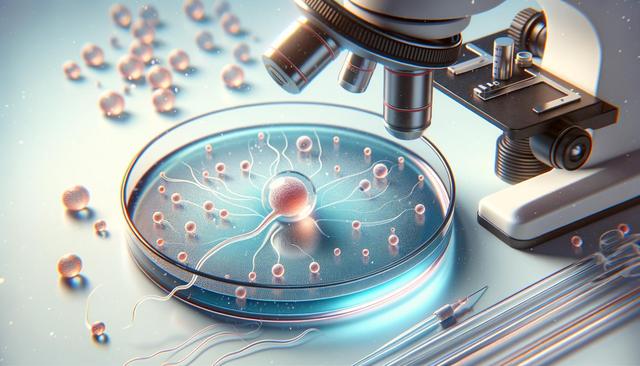What Is Sperm Donation and Who Can Benefit?
Sperm donation involves a healthy individual providing sperm, typically to a fertility or sperm clinic, to help others achieve pregnancy through assisted reproductive technologies. This process plays a crucial role for individuals and couples experiencing infertility, single women, and same-sex couples who wish to start a family. Searching for a ‘Sperm Fertility Clinic Nearby’ or an ‘Ivf Center Nearby’ can be the first step for many looking to explore these options. The donated sperm is carefully screened to ensure its health and viability before use in procedures like intrauterine insemination (IUI) or in vitro fertilization (IVF).
Recipients of donor sperm can benefit greatly from this process. It allows them to experience pregnancy and childbirth while also having the opportunity to choose a donor based on preferred characteristics. In some regions, like Denmark, many opt to ‘Donate Sperm Denmark’ due to structured regulations and a high standard of donor screening, making it a renowned destination for this service.
How the Sperm Donation Process Works
The process of sperm donation typically begins with an application at a ‘Sperm Clinic Nearby’ or a fertility center. Potential donors go through a detailed screening process to ensure they meet all ‘sperm donation requirements’. This includes:
- Medical evaluations and genetic testing
- Background checks and lifestyle assessments
- Psychological evaluation to ensure emotional readiness
Once accepted, donors are asked to provide samples over several months. These are frozen and quarantined before being re-tested for diseases. Only after passing all health checks are the samples released for use. Clinics ensure anonymity and confidentiality, although some regions allow for open ID donors, where a child can contact the donor upon reaching adulthood.
Facilities around Europe, especially those that encourage people to ‘donate sperm Copenhagen’, have streamlined processes and strong donor protections. Whether you are donating or receiving, working with a trusted clinic ensures that ethical and medical standards are upheld throughout the process.
Legal and Ethical Considerations
Sperm donation carries legal and ethical implications that vary by country and clinic. Donors often sign agreements that waive parental rights and responsibilities. However, it’s important to consult with professionals to understand the laws in your region. For example, laws in Denmark, where many choose to ‘Donate Sperm Denmark’, require comprehensive donor agreements and allow for both anonymous and open ID donation options.
Ethical considerations include informed consent, the right of the child to know their genetic origins, and the number of offspring allowed per donor to prevent inadvertent consanguinity. Clinics and donors must work within established ethical frameworks to ensure the well-being of all parties involved.
Where to Donate or Receive Sperm
For those interested in donating or receiving sperm, finding the right facility is crucial. Searching for a ‘Sperm Fertility Clinic Nearby’ or ‘Sperm Clinic Nearby’ can help identify local options. Additionally, for recipients undergoing IVF, locating an ‘Ivf Center Nearby’ ensures smooth coordination of care. Countries like Denmark are known for their structured donation programs, which is why many individuals choose to ‘donate sperm Copenhagen’ or seek services there.
When selecting a clinic, consider the following factors:
- Accreditation and licensing
- Transparency in donor screening processes
- Support services for both donors and recipients
- Clear information on legal rights and responsibilities
Whether you’re donating or receiving, a well-regarded facility helps ensure a safe and supportive experience throughout the process.
Financial and Administrative Aspects
Sperm donation is generally a voluntary act, but donors may receive compensation for their time and travel. This varies by country and clinic. On the administrative side, clinics must maintain accurate records and comply with medical and legal standards. This often involves specialized ‘Fund Accounting for Nonprofits’, especially in clinics run by nonprofit organizations. Proper accounting ensures transparency and ethical use of funds.
Recipients can expect to pay for consultations, screenings, storage, and the insemination or IVF procedure. Financial planning is essential. Some clinics offer packages or payment plans to make the process more accessible. Understanding the full scope of costs and available support can ease the journey for many families.
Conclusion: Helping and Hoping Through Sperm Donation
Sperm donation is more than a medical procedure—it’s a meaningful contribution to helping others build families. Whether you’re looking to ‘donate sperm Copenhagen’, find a ‘Sperm Fertility Clinic Nearby’, or explore ‘sperm donation requirements’, being informed is key. By choosing reputable clinics and understanding the process, both donors and recipients can navigate this journey with confidence and care.







